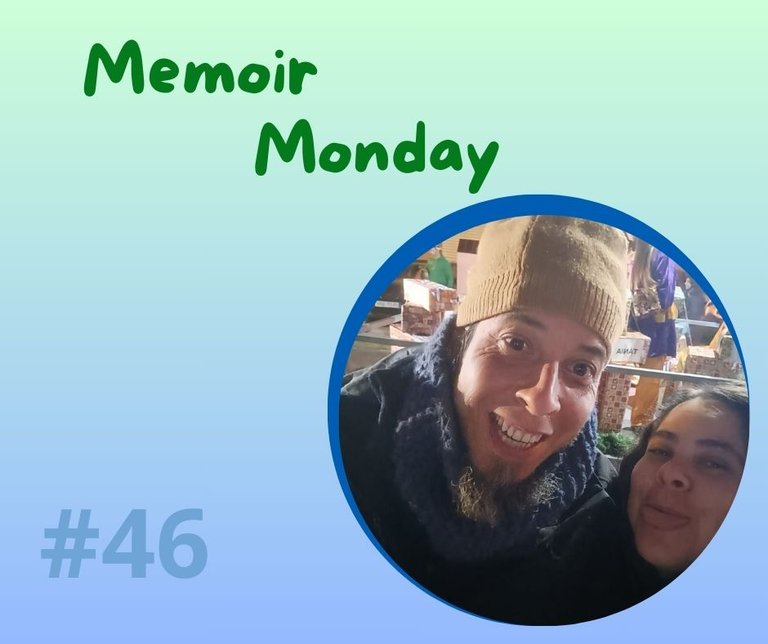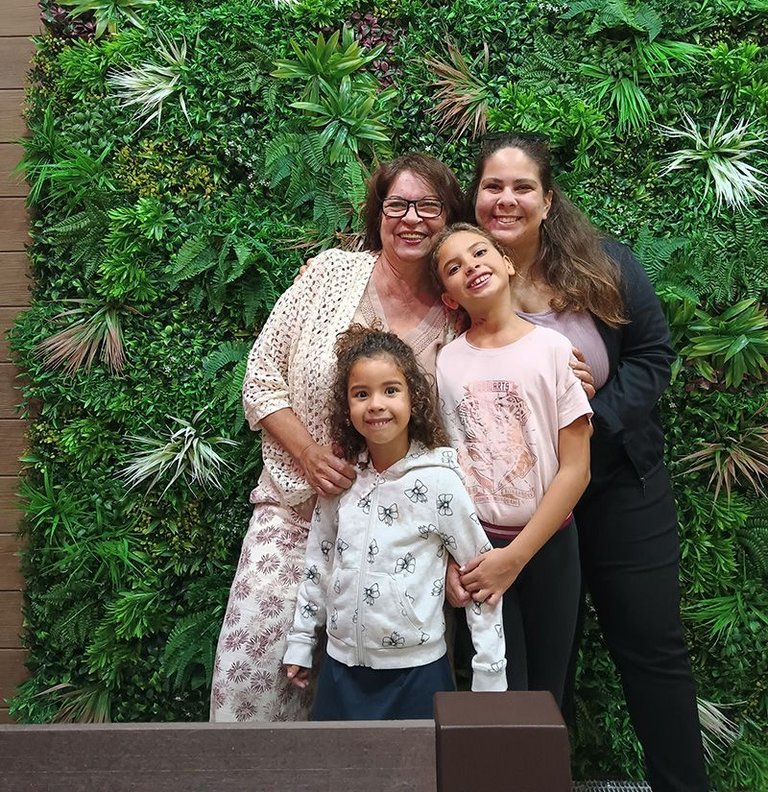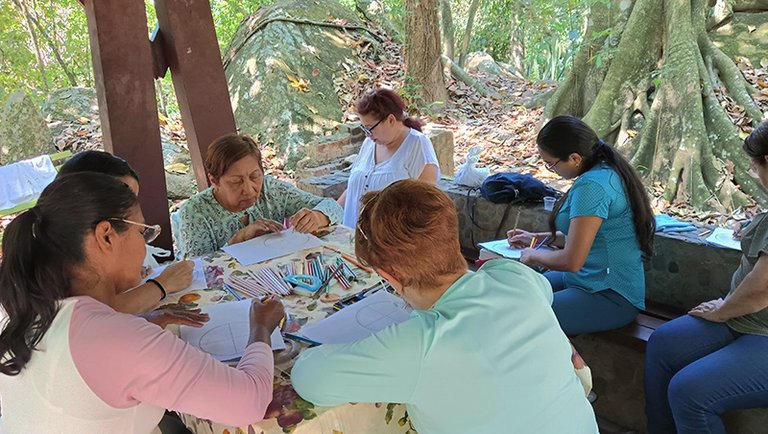
These last two weeks I have read a lot about depression, as a friendly community, where I am a curator, proposed it as a topic for reflection and participation has been quite high.
Understanding depression, in its most elemental aspect, as being trapped in a deep sadness and that it is one of the disorders that affect millions of people in the world, I wonder what is it that fills us with so much sadness?
The answer can be found in two areas, personal and social, which of course are interrelated in a process where one creates the other. From this point of view we find personal aspects such as genetics and attitudes towards life that predispose us to sadness and that the social context contributes to reinforce it, bearing in mind that what makes us sad is completely subjective, an interpretation that we make of reality, consciously or unconsciously.
Based on these ideas I pose myself the question of this week's Memoir Monday #46 (1/20-1/26) - What Makes You Sad?.

The first answer that comes to mind is, not being around my children and granddaughters. In December my son had a fracture in his forearm, he had surgery and everything went well, thank God, but I was not there to support him and take care of him, now all four of them; my two sons and two granddaughters caught a virus, according to the medical authorities it is a variant of the coronavirus with added symptoms such as high fevers and stomach problems, they are already a little better, but I am not with them to take care of them and attend them, this fills me with sadness.
This sadness that is momentary because in ten-twelve days they will be fine and will continue their lives, has a deeper root than the eventuality of the moment, and it is the political-social situation of my country, then I think of all those parents whose children have emigrated, we feel the emptiness of physical absence, the perennial uncertainty of how they will be and the lack of embrace, smiles, complicity and sharing life, make sadness a notable presence in our lives.
It saddens me that those who knew about my son's broken arm, the general comment was: Thank God he is there, here who knows what would have happened! And yes, I feel grateful that he is there and that everything has had a happy ending, because, inevitably, at that moment images came to my mind of a young neighbor who recently lost one of his legs because the hospital did not attend him in time or the old friend who was hit by a car leaving him with a hip fracture that has him in bed because the operation and prosthesis cost him eight thousand dollars, in the hospital, which is supposed to be public, and whose figure becomes unaffordable.
This is only in the area of health and in things that current medicine solves without much complication, but here we are in these experiences, that whether you want or not, if you dwell on them, sadness, easily remains installed.
And here is where the particularity comes in, the personal, how far do I allow sadness to advance in me? My fear of it becoming deep has led me, for more than eighteen years, to a constant search for strategies to keep it at bay. Beginning with learning how to handle that invasive, recurrent and harassing thought that can unceremoniously place me in the bad-being, understanding that that same thought is mine, that I am the one who creates them, so I am the one who can put the reins on it and guide it along the paths I want.
Much has been my learning in this sense, to such an extent that in 2020, with the arrival of the pandemic, I made a compilation of strategies and created an on-line workshop that I called: Quiet your mind, with the idea of helping myself and others. At the end of the pandemic, I abandoned its multiplication, but not my practice.

Yesterday, I started to multiply it again, this time in person. The result is to meet people who are in your same search for knowledge and practices that help them to minimize the effects of sadness, to take their mental health seriously, because they have already taken the step of knowing that they are vulnerable to situations and are fully aware that they can do a lot, in an intentional way, to be and feel in a greater inner well-being.
It is not about hiding sadness and there are plenty of reasons for it to appear, the interesting thing is to find many more reasons for gratitude and joy.

En Español

Estas dos últimas semanas he leído mucho sobre la depresión, pues una comunidad amiga, donde soy curadora, lo propuso como tema de reflexión y la participación ha sido bastante alta.
Entendiendo la depresión, en su aspecto más elemental, como estar atrapado en una tristeza profunda y que es uno de los trastornos que afectan a millones de personas en el mundo, me pregunto ¿qué es lo que nos llena de tanta tristeza?
La respuesta la podemos encontrar en dos ámbitos, en lo personal y lo social, que por supuesto se encuentran interrelacionadas en un proceso donde una va creando la otra. Desde esta óptica encontramos los aspectos personales como la genética y las actitudes hacia la vida que nos predisponen a la tristeza y que el contexto social contribuye a reforzarla, teniendo presente que aquello que nos produce tristeza es completamente subjetivo, una interpretación que hacemos de la realidad, consciente o inconscientemente.
Partiendo de estas ideas me planteo la pregunta del Memoir Monday #46 (1/20-1/26) - What Makes You Sad? de esta semana ¿Que me entristece?

La primera repuesta que viene a mi mente es, no estar cerca de mis hijos y nietas. En diciembre mi hijo tuvo una fractura en el antebrazo, lo operaron y todo salió bien, Gracias a Dios, pero yo no estaba allí para apoyarlo y cuidarlo, ahorita los cuatro; mis dos hijos y las dos nietas agarraron un virus, según dicen las autoridades médicas es una variante del corona virus con síntomas agregados como altas fiebres y problemas estomacales, ya están un poco mejor, pero no estoy con ellos para cuidarlos y atenderlos, esto me llena de tristeza.
Esta tristeza que es momentánea porque en diez-doce días estarán bien y seguirán sus vidas, tiene una raíz más profunda que la eventualidad del momento, y es la situación política- social de mi país, entonces pienso en todos esos padres cuyos hijos han emigrado, que sentimos el vacío de la ausencia física, la incertidumbre perenne del cómo estarán y la carencia del abrazo, de las sonrisas, de la complicidad y el compartir la vida, hacen de la tristeza una presencia notable en nuestras vidas.
Me da tristeza que quienes supieron de la fractura del brazo de mi hijo, el comentario generalizado era: ¡Gracias a Dios está allá, aquí quién sabe qué hubiese pasado! Y si , me siento agradecida de que esté allá y todo haya tenido un final feliz, porque, inevitablemente, en el momento llegaban a mi mente las imágenes de un joven vecino que recientemente perdió una de sus piernas al no ser atendido oportunamente el hospital o el viejo amigo que lo atropelló un vehículo dejándole una fractura de cadera que lo tiene en cama porque la operación y prótesis le sale en ocho mil dólares, en el hospital, que se supone que es público, y cuya cifra se vuelve inalcanzable.
Esto es solamente en el área de salud y en cosas que la medicina actual resuelve sin mucha complicación, pero por acá andamos en estas vivencias, que quieras o no, si te detienes en ellas, la tristeza, fácilmente se queda instalada.
Y aquí es donde entra la particularidad, lo personal, ¿hasta dónde permito que la tristeza avance en mi? Mi temor a que se volviese profunda me ha llevado, por más de dieciocho años, a una búsqueda constante de estrategias para mantenerla a raya. Comenzando por aprender a manejar ese pensamiento invasivo, recurrente y acosador que sin miramientos, me puede ubicar en el mal-estar, comprendiendo que ese mismo pensamiento es mío, que soy yo la que los crea, por lo que soy yo, la puede colocarle las riendas y guiarlo por los caminos que quiero.
Mucho ha sido mi aprendizaje en este sentido, a tal punto que en el 2020, con la llegada de la pandemia hice una recopilación de estrategias y cree un taller on-line que lo llamé: Aquieta tu mente, con la idea de ayudarme a mi misma y a otros. Al finalizar la pandemia abandoné su multiplicación, más no mi práctica.

Ayer, comencé a multiplicarlo nuevamente, esta vez de forma presencial. El resultado es encontrarte con personas que están en tu misma búsqueda de conocimientos y prácticas que les ayuden a minimizar los efectos de la tristeza, de tomarse en serio su salud mental, pues ya han dado el paso de saberse vulnerables ante las situaciones y tiene la plena consciencia de que pueden hacer mucho, de manera intencionada, para estar y sentirse en un mayor bienestar interior.
No se trata de esconder la tristeza y motivos para que ella haga acto de presencia abundan, lo interesante es encontrar muchos más motivos para el agradecimiento y la alegría.

Translated with www.DeepL.com/Translator (free version)
Fuente de imágenes: Archivo personal



MIS REDES SOCIALES





Be Entrepreneur




